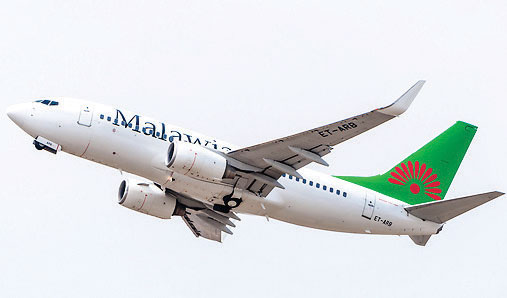Examining AI’s Promise of Transforming Hospitality’s Procurement Operations

The hospitality industry has often viewed managing procurement needs as both complex and high-stakes, with every decision impacting operational efficiency, guest satisfaction and business profitability. From optimizing purchasing decisions to maintaining optimal inventory levels, procurement teams often face the challenge of balancing guest experience goals with increasingly tight budgets.
In an industry where success increasingly relies on making quick, informed decisions, traditional manual procurement methods are no longer capable of keeping pace with demands for delivering exceptional results. With the rise of artificial intelligence and its application to hotel procurement operations, hospitality professionals now have an opportunity to overcome inefficiencies that hinder business growth and drive up costs. Procurement specialists have already begun to focus on adapting to new AI-powered technologies, which save time while providing the superior results and service quality that modern hoteliers and their guests expect.
Where AI Fits into Hotel Procurement Operations
According to a recent study, seventy-three percent of businesses lose time to manual processes, with procurement noted as especially vulnerable to costly inefficiencies and errors. From restocking food and beverage (F&B) inventory to ordering cleaning supplies and furniture, managing the procurement demands of a hotel is a daunting task made more challenging by the fluctuating demands of daily operations and occupancy levels and vast amounts of fragmented data required to make informed decisions.
Attempting to manually oversee wide-ranging procurement tasks often results in a lack of transparency, uncontrolled spending, inaccurate data, incorrect item purchases, and unreliable supplier relationships. Each of these issues contributes to higher operational costs, reduced staff productivity, increased waste and diminished guest service quality.
AI’s ability to analyze mass data and provide instant, informed responses makes it an ideal tool for hospitality-based procurement operations. The technology empowers buyers with the relevant information they need to make the best purchasing decisions, ensuring optimal pricing while supporting brand standards and strategic company goals, such as responsible procurement practices. By automating repetitive tasks, such as inventory forecasting, AI helps prevent human errors that could lead to costly or reputation-damaging mistakes. When supported by smart technology, managers and their staff can avoid the risk of running out of a popular item. With regards to a property’s F&B operations, it can also prevent over-ordering perishable inventory, which ultimately translates into avoidable waste and lost revenue.
For the hospitality industry, AI offers a unique and unmatched ability to ensure that supply always matches demand. Bypassing countless hours of manual inventory checks or inaccurate guesswork, it instead empowers a hotel’s staff with real-time and precise data to evaluate and adjust business strategies as required based on current and future needs. As guest service expectations continue to increase, AI-enabled procurement technology will undoubtedly play an increasingly role in adapting to evolving market conditions and maintaining a competitive edge.
Digging into the Procurement Roles Where AI Has the Advantage
With the promise of significant cost savings, improved purchasing decisions, and increased workforce efficiency, AI is widely seen as a game-changer by many procurement specialists. Demonstrating this trend is the fact that seventy-five percent of such professionals have already observed increased investment in technology. Key areas that have attracted the most interest and where AI is expected to provide the biggest benefits for hotel procurement operations include:
1. Smart Inventory Management
AI streamlines the inventory management process and saves employees from endlessly verifying supply levels which when done manually, can take up far too much time while increasing operating costs and preventing the ability to gain key insights. For businesses that have already embraced AI-driven inventory management strategies, such advantages are clearly visible, with many organizations reporting a reduction in logistical costs by as much as 15 percent.
By providing near-instantaneous updates on inventory levels, AI importantly ensures that businesses always have an accurate understanding of their stock and what they have available. Better still, AI is capable of analyzing historical inventory consumption and purchase data to recommend ideal item levels. This ability not only prevents overstocking or understocking but also provides high-value analytics into how a property should adjust business and sales strategies according to the evolving demands and preferences of guests.
While minimizing waste and unnecessary expenses, AI-enabled procurement is also becoming an essential tool that prevents guests from experiencing frustration when a requested item suddenly runs out. With the ability to issue timely alerts before stock levels are exhausted, AI allows procurement teams to place orders just in time to ensure that an item is always readily available for the next guest.
2. Enhanced Supplier Relationships and Efficiency
Another key advantage of AI-supported procurement operations is the ability to significantly enhance supplier selection and management by automatically identifying suppliers that align with brand standards, operational needs and guest service goals. For example, AI can prioritize suppliers that use sustainable packaging, as well as eco-friendly manufacturing and shipping processes. For a hotel’s F&B operations, the technology can ensure that ingredients are free from certain allergens or are sourced from specific regions. As guests rightly demand increased adherence and transparency over such issues, AI-based procurement tools will ensure that hotels can consistently maintain quality and compliance with both expectations and regulatory standards.
Supplier reliability is undoubtably a crucial aspect of procurement operations that can make or break a property’s service quality. To ensure only those capable of maintaining compliance with needs and expectations are identified, AI can evaluate suppliers based on past performance and reputation. This minimizes potential risks to business operations and reputations by avoiding suppliers known for carrying out late deliveries, overcharging or providing inferior quality products.
AI-driven solutions can also more effectively negotiate with multiple suppliers and ultimately remove another high-stress burden from the shoulders of staff. The technology can be relied on to procure high-quality items at the best possible prices by automatically comparing offers made by each supplier. By reducing the time required to locate and vet suppliers along with their price offerings by as much as 90 percent, AI allows hotel teams to focus on other important tasks, enhancing overall productivity and minimizing the risk of making costly mistakes.
3. Redefining the Concept of Touchless Invoicing and Streamlined Payments
AI advances are also leading to new tools that can take digital invoicing to new heights in efficiency and accuracy. Within seconds instead of hours, these tools can analyze invoice line items in detail, identifying any discrepancies that need to be swiftly addressed. This prevents common issues such as accidental overcharges or duplicate invoices that can be easily overlooked and which often result in an avoidable drain on profits.
With some payments often being more consequential than others, AI can also be counted on to automatically prioritize invoices based on urgency, relationships and terms. Whether for utility bills, taxes, inventory suppliers or dry cleaners, AI can ensure optimized cash flow management and prevent the incurring of late fees and other penalties. This advantage not only enhances financial efficiency but also fosters stronger relationships with suppliers.
The reduction in manual processing hours further allows staff to focus on other high-priority tasks by drastically reducing the number of work hours required to manage invoicing and accounting operations. Hoteliers supported by these capabilities can ultimately run a more streamlined, efficient and responsive business, while also gaining significant cost savings. Even a one percent improvement in accuracy and efficiency in invoicing can translate into substantial financial benefits for hospitality businesses.
The Longer-Term Advantages of AI-Enabled Procurement
Beyond addressing immediate operational challenges, AI-driven procurement also offers unparalleled long-term advantages for hospitality businesses. By enabling data-driven decision-making, AI provides granular insights into a hotelier’s evolving business needs and priorities.
These insights allow both independent properties and major brands to identify growth opportunities and eliminate costly investments that fail to generate revenue. AI can pinpoint underperforming areas of a business and recommend strategic shifts to optimize profitability and growth. The technology’s ability to aggregate and analyze large volumes of data also means that even subtle trends or emerging market demands can be detected early, allowing businesses to pivot and capitalize on new opportunities before their competitors. For example, AI can forecast demand for specific services or amenities based on historical data and external factors such as seasonal changes, local events or economic conditions. This foresight enables hotels to allocate resources effectively and introduce targeted strategies that both maximize revenue and enhance guest satisfaction.
An AI-driven procure-to-pay strategy not only ensures cost-effective growth but also enables businesses to adapt to market fluctuations with agility. By automating routine procurement processes, hoteliers can redirect staff focus toward more strategic initiatives, such as developing innovative guest experiences or enhancing sustainability practices. AI also supports long-term supplier relationship management by continuously evaluating supplier performance and identifying opportunities to renegotiate contracts or diversify sourcing options.
With AI becoming a mainstream feature in procurement operations, hoteliers must proactively assess their processes to identify where this technology can be most effectively implemented. Doing so is essential for maintaining a competitive edge in an industry where exceptional customer experiences and efficient operations are critical for success.
The integration of AI into procurement practices doesn’t just modernize operations- it builds a foundation for long-term resilience and growth in an ever-evolving market landscape. By embracing its capabilities, hospitality businesses can achieve unprecedented levels of efficiency, cost savings, and service quality, positioning themselves as leaders within an increasingly competitive market.
Reprinted from the Hotel Business Review with permission from www.HotelExecutive.com.
About BirchStreet Systems
Founded in 2002, BirchStreet is the leading global provider of enterprise procure-to-pay solutions for the hospitality sector. BirchStreet's software platform provides leading global hospitality brands with a full suite of procurement applications, including eProcurement software, accounts payable automation, invoice management, inventory management, recipe management, supplier payments, and reporting and analytics. BirchStreet's customers leverage the company's solutions to access a broad network of suppliers and manage billions of dollars of spend annually across a wide variety of categories, including food and beverage, operating supplies, maintenance services and capital projects. For more information, please visit www.birchstreetsystems.com.
What's Your Reaction?
 Like
0
Like
0
 Dislike
0
Dislike
0
 Love
0
Love
0
 Funny
0
Funny
0
 Angry
0
Angry
0
 Sad
0
Sad
0
 Wow
0
Wow
0














































